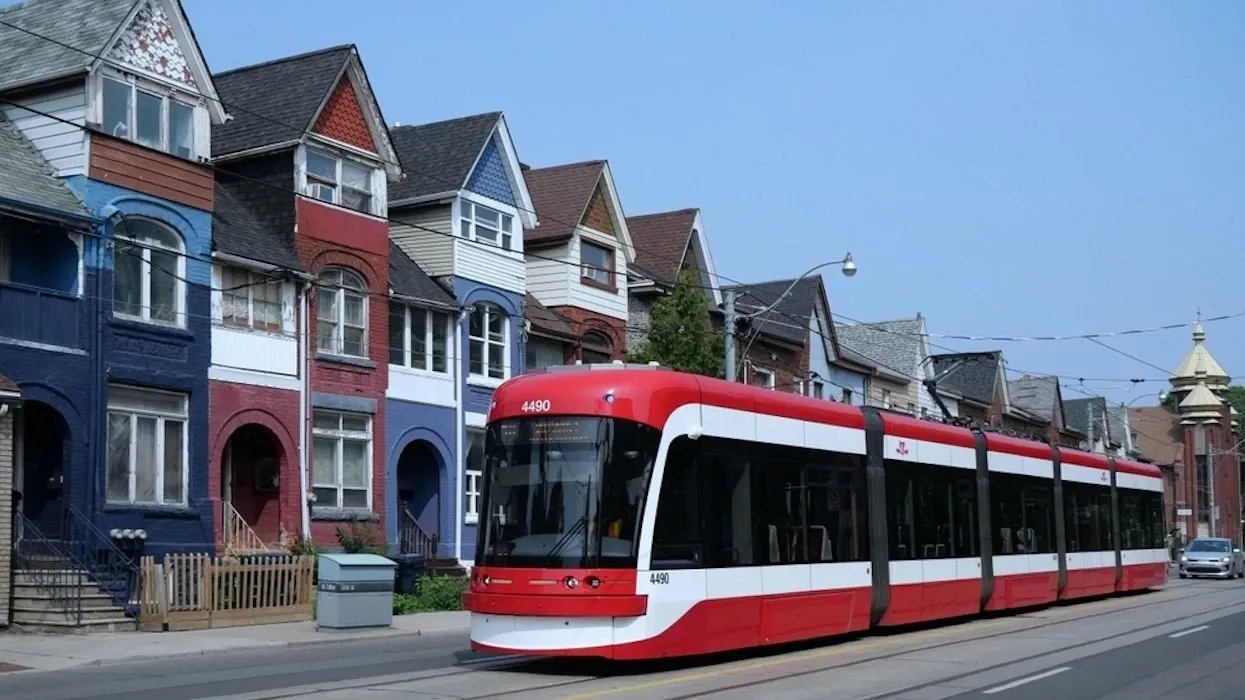The City of Toronto is getting flooded with complaints after informing tens of thousands of residents that they owe the Vacant Home Tax — when, in fact, they don’t.
A City spokesperson told STOREYS on Monday that approximately 150,000 homes were ‘declared or deemed’ vacant in 2023, leaving those homeowners strapped with the tax. As of Friday, at least 61,000 of those decisions have been reversed because they were unduly issued. As homeowners continue to file Notices of Complain and the city continues to process them, that number will go up. Almost 72,000 notices have been filed as of Friday.
So, what exactly went wrong?
The City is being pretty tight-lipped about the whole thing, saying only that they need to do “further investigation” and look into "details about specific situations” before providing an explanation. “We do not currently have information regarding how many homes were vacant, how many residences failed to declare occupancy status, and how many received notices in error,” they added. “In order to ensure accuracy, we require time to review the data."
The word around the web is that many people didn’t submit their declarations. And some of those same people successfully declared last year, they just didn’t realize that they had to declare every year. This isn’t exactly news: when the City extended the declaration deadline by a month, they cited the fact that declarations were outstanding for 37% of residential properties at that time.
The city’s budget chief and city councillor Shelley Carroll (Ward 17, Don Valley North) has also come out and said that “many residents have received a Vacant Home Tax bill despite having filed the declaration on time” and that “it seems this happened to people who filed the declaration on time but after property tax bills had been issued.” The City spokesperson neither confirmed or denied Carroll's statement.
Toronto: We've heard you loud and clear. @MayorOliviaChow and I are taking action to address this year's Vacant Home Tax rollout, including waiving all late declaration fees.
If you have received a bill in error, please submit a notice of complaint. Learn more about next steps⬇️ pic.twitter.com/kJneguRU6h
— Shelley Carroll (@shelleycarroll) April 5, 2024
Calls For Improvement
Toronto’s Vacant Home Tax is still in its infancy. This is only the second year the tax has been in effect, after all, so it’s easy to chalk this debacle up to growing pains. At the same time, it highlights the need to refine, and perhaps even overhaul, the process.
In an update sent out on Saturday, Councillor Jamaal Myers (Ward 23, Scarborough North) said that he believes the City can find a “more efficient way to identify homes that are unoccupied without the cumbersome process of homeowners completing annual declarations.” He added that the way things are being done now may also be an unnecessary drain on city resources.
This is not the first time Myers has questioned the filing process. “Isn't there a way to collect the information by targeting homes that we suspect are vacant rather than asking everyone in the city to fill out these forms?” Myers asked the room at last month’s City Council meeting. “It seems terribly inefficient how we do this, asking people to declare their homes vacant when most people are just going to not do that, rather than just targeting the homes that we suspect are vacant.”
He later suggested scrapping the declaration process in favour of a more pointed system that relies on utility usage. “We're not really looking for declarations, we're looking for those homes that are actually vacant. That should be the focus rather than getting people who live in their homes to fill up this form,” he said. “There's water, there's electricity, there's regular usage, we can see if a home is being used or not.”
But bear in mind: there isn’t really a precedent for a more efficient and effective filing process. The City of Vancouver’s Empty Home Tax — it’s been in effect for about seven years — is executed the same way, with homeowners required to declare the status of their properties on a yearly basis.
The Vacant Home Tax is a useful tool to incentivize bringing investment properties back into the housing market. However, I believe the method the City uses to identify vacant homes needs improvement & their response to those who simply miss making a declaration is too punitive.
— Josh Matlow (@JoshMatlow) April 3, 2024
Other Councillors argue that the City just needs to be better when it comes to communication. Councillor Alejandra Bravo (Ward 9, Davenport) said in a community update that it was “not well-communicated and made clear” to homeowners that they would have declare the occupancy status of their properties more than once. Similarly, Ward 24 Councillor Paul Ainslie pointed to the fact “there was no communication to everyone in easily understandable language” in a letter to Scarborough-Guildwood residents. Ainslie also said that “not enough consideration” was given to seniors and those who don’t have access to a computer.
In any case, Toronto homeowners who believe they have been mistakenly issued a Vacant Home Tax bill are being advised not to pay the tax and file a Notice of Complaint online. Homeowners also have the option to file in person at city hall or any civic centre, and are being encouraged to reach out their respective City Councillors with any questions.
- Toronto Vacant Home Tax Raises Questions Over Implementation ›
- Toronto City Council Votes To Increase Vacant Home Tax To 3% ›
- Toronto Due For Vacant Home Tax Shake-Up After Backtracking On Charges ›
- Toronto Vacant Home Tax Updated After Disastrous Rollout ›
- Toronto Vacant Home Tax Declarations Are Due Tomorrow ›





















